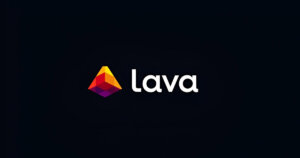 From failure to fortune: Jonathan Bouzanquet on blockchain and gaming
From failure to fortune: Jonathan Bouzanquet on blockchain and gaming Jonathan Bouzanquet, the Co-Founder and Chief Strategy Officer of Playa3ull Games, joined CryptoSlate’s SlateCast alongside Editor-in-Chief Liam “Akiba” Wright and CEO Nate Whitehill. In a thought-provoking discussion, Bouzanquet shared his vision for blockchain gaming, emphasizing a community-first approach, sustainable funding, and the potential of blockchain technology to revolutionize the gaming industry.
Building Games Backwards: A Player-Centric Philosophy
The discussion delved into Playa3ull’s unique approach to game development, which they call “building games backwards.” This method emphasizes community involvement from the outset.
Jonathan stated, “With Play3bull, we bring the community back into the game. We don’t want to just tell the player, this is our game, play it or fuck off. We want to say, here’s the game. What do you think? How can we make it better?”
This strategy involves an advisory council rather than a traditional DAO, aiming for a dialogue between developers and players to shape the game’s evolution based on real feedback.
The Importance of Digital Asset Ownership
A significant part of the conversation revolved around the benefits of blockchain for gaming, particularly in terms of asset ownership. Jonathan highlighted the frustrations with traditional gaming where players do not own their in-game achievements.
“Since you invest such enormous amounts of time, it’s important to have those assets owned and they are valuable,”
he remarked, envisioning a future where these assets could have inter-game utility.
Playa3ull’s Economic Model: The Bull Token
Jonathan detailed Playa3ull’s economic system, centered around the Bull Token. Unlike many gaming platforms with separate tokens for each game, Playa3ull uses a single token across its ecosystem for stability and broader utility.
“So, our coin comes into existence through our node system… half the coin goes to the company for company function, and half the coin goes to the nodes,”
he explained, outlining a model that supports both development and community engagement.
Anticipating AI’s Role in Game Development
Looking ahead, Jonathan discussed the integration of AI in game development, predicting a transformative shift where AI could significantly alter how games are created and experienced.
“I perceive that over the next 12 months to two years, we’re going to see a complete reorganization of game development where you will basically just be talking to an AI,”
he said, suggesting that Playa3ull is preparing for this shift by developing AI tools.
Conclusion
The SlateCast episode with Jonathan Bouzanquet provided deep insights into the evolving relationship between cryptocurrency and gaming. From innovative asset ownership to potentially reshaping how games are developed and played, the integration of blockchain into gaming promises to revolutionize player experience and value. As regulatory frameworks develop and more gamers demand true ownership of their digital assets, the intersection of blockchain and gaming will be a critical area to watch in the coming years.
Episode Hosts
Also known as “Akiba,” Liam Wright is a reporter, podcast producer, and Editor-in-Chief at CryptoSlate.
Nate Whitehill, a technology entrepreneur with nearly two decades of experience developing web applications, plunged into digital assets upon discovering Bitcoin in 2015.



 CoinGlass
CoinGlass 












































































 Liam Wright
Liam Wright  Nate Whitehill
Nate Whitehill 

